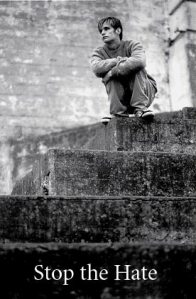The United States has blamed us for suppressing the students. But didn’t the U.S. itself call out police and troops to deal with student strikes and disturbances, and didn’t that lead to arrests and bloodshed? It suppressed the students and the people, while we put down a counter-revolutionary rebellion. What right has it to criticize us?
— Deng Xiaoping, June 9, 1989, comment to officers of troops enforcing martial law in Beijing after the Tiananmen events on 4 June.
On this date, less than a week after the Tiananmen Square protests were crushed on 4 June, Deng Xiaoping, chairman of the Central Military Commission and China’s foremost leader, delivered an address in Beijing to military commanders. The address, which was first reported in Chinese newspapers in Hong Kong and the United States, emerged as a key document setting out the party line in the crackdown on the pro-democracy movement. He stated that the government had suppressed a “counterrevolutionary rebellion . . . determined by the international and domestic climate” where the “dregs of society” had sought to “establish a bourgeois republic entirely dependent on the West.”

Chinese senior leader Deng Xiaoping, left, shakes hands with officers of the People's Liberation Army in Beijing June 9, 1987 while former President Li Xiannian, left, looks on.
An official publication issued by the Chinese authorities in 1990 about the “riots,” The Truth About the Beijing Turmoil, claimed that 6,000 troops had been injured and “scores” had been killed. The book said that 3,000 civilians were wounded, and over 200, including 36 university students, had died. These casualties occurred when troops “counter-attacked,” it states, and “some rioters were killed, some onlookers were hit by stray bullets and some wounded or killed by armed ruffians.” How this could have happened when soldiers only “fired into the air” as it claims was left unexplained.
More recent commentators have made much of the fact that the party leadership generally now refers to the events of that year as a “political incident” rather than the more harsh-sounding “counterrevolutionary rebellion.” But the denial of extensive loss of life among ordinary people in the official version, dubbed “the big lie” by many observers, has not been revised, even to a small extent. The attempt to impose collective amnesia is encouraged by a deafening silence on the matter in the Chinese media.

























You must be logged in to post a comment.